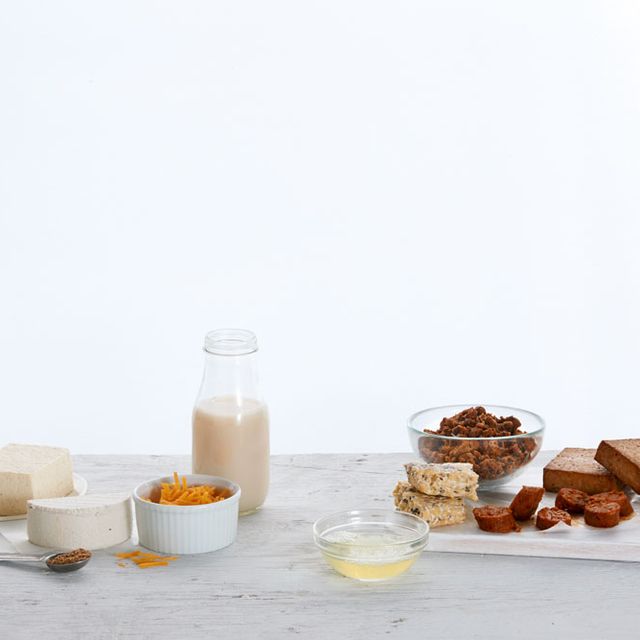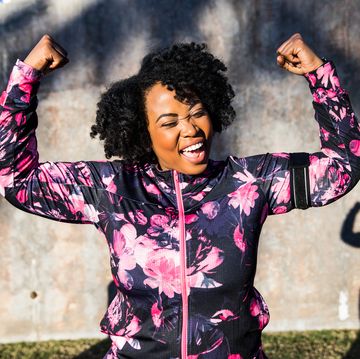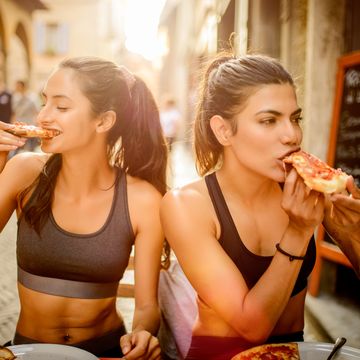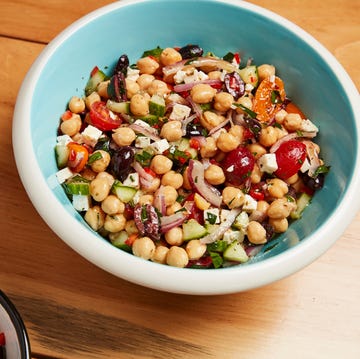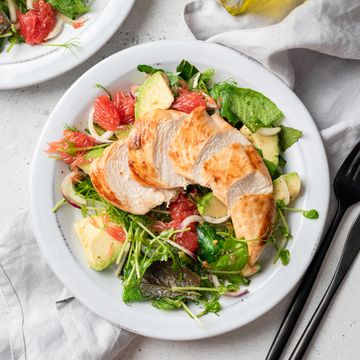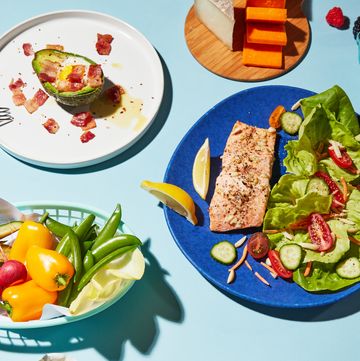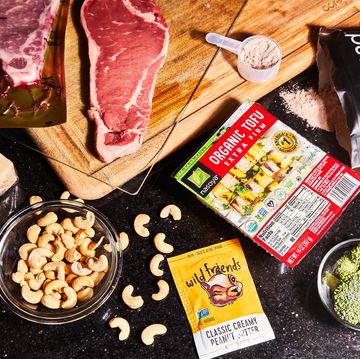Eat meat or be protein-deficient. Don’t eat meat and become a stronger runner. Cut out all animal products. Okay, maybe leave some in. The jury goes back and forth on the optimal diet for a runner. But more and more research shows it is possible to be a high-performing runner who’s a vegetarian, or vegan, or a “flexitarian” (mostly veggies with some meat).
What’s clear is no matter what sort of diet you choose to follow, eating more plants is not a bad thing. In fact, studies have shown that people who eat a Mediterranean diet (famous for being high in plant foods and low in meat) reduce their risk of dying from cardiovascular disease by 76 percent.
Cutting the meat (entirely or just a little) doesn’t automatically equal a deficiency in protein. With careful thought and planning, you can create a plant-based diet that will keep you running strong.
Plants, Everywhere
Mintel reports that in recent years more than 12 percent of global food and drink product launches carry a vegetarian claim. And many of those are high in protein, meaning you have more options than ever to find vegetarian, nutrient-dense foods (that also taste good).
The more plant-based proteins you eat (like quinoa, soy, brown rice, and legumes) the less you’ll need to find your protein from animal products. That means you’ll decrease your consumption of saturated fats and boost your intake of fiber and antioxidants, found in plant foods.
Remember that not all plant-based proteins are “complete,” meaning they don’t contain all nine essential amino acids. But eating a variety of these foods will allow you to build complete proteins and reap the same benefits as eating meat (and eggs).
Elites all About Plant-Based Protein
More athletes than ever are positioning themselves as more plant-based eaters. U.S. middle distance runner Maggie Vessey (you may recognize her from her high-end fashion statements on the track) said she follows a plant-based diet because she “knows that plant-based protein is a great way to fuel my body. I’m always trying to incorporate more vegetables into my diet and look for new ways to improve my overall health, fitness, and myself as an athlete.”
Vessey notes that her transition is conservative this year due to the Olympics, “I can’t afford to completely change my diet,” she said.
But to date, she hasn’t noticed any negative impact on her training, and in fact, she feels her body is responding well.
“My body is responding to the stress, and I am consistently feeling smooth, calm, strong and ready for the next progression in the weight room, and on the track and trails,” she said.
So even if you don't want to give up your indulgent juicy burger, you can eat more plants. Try this sample menu, which is complete with some of the market’s best-tasting new plant proteins and vegetarian-approved high-protein foods. This menu was developed based on a 130-pound person who runs three to four times a week, and who needs about 2,000 calories and 100 grams of protein a day.
Breakfast
1 cup high-protein, high-fiber cereal like Kashi Go Lean
1 medium piece of fresh fruit
1 cup calcium- and vitamin D-fortified almond milk
Snack
Handful of mixed nuts, like Planter’s Nut-trition Chocolate Nut protein mix
Lunch
Naan pizza: 1 piece naan topped with ¼ cup pesto, ½ cup sliced cherry tomatoes, ½ cup shredded cheese; bake at 350°F until cheese is melted, or Veestro made-to-order pizza
Snack
1 cup baby carrots
1 toasted whole-wheat pita with ½ cup hummus, like Hummusphere
Dinner (This taco salad is especially good after a run)
3 oz. meatless chicken strips, like Beyond Meat
Vessey reaches for these lightly seasoned “chicken” strips after a workout because “they’re a clean protein source that’s tasty and easily digested."
2 cups chopped romaine lettuce
½ cup black beans
1 oz. bean-based chips, like Beanitos Hint of Lime
¼ cup guacamole
¼ cup dairy-free cheese shreds, like Daiya pepperjack
Nutrition: 1,998 calories, 101 g protein
